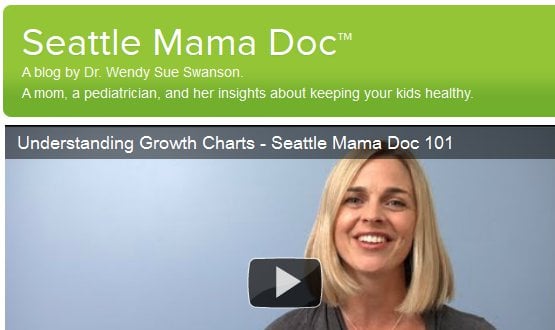Call to ‘join patients online’
- 29 February 2012

Doctors have an “ethical duty” to use the communication channels their patients use to communicate with them, provide them with good medical advice, and influence their lifestyle choices.
That was the impassioned call of blogger and Seattle paediatrician Dr Wendy Sue Swanson to the CIO Forum at HIMSS12 last week.
“Health is a team sport. It is about helping patients to pursue wellness, and we have to go where patients are – which is online,” she said.
Changing times
A dramatic socio-cultural shift has occurred in just a few, scant years, Dr Swanson argued. People now inhabit social networks, mobile channels and peer-to-peer networks.
They look for health information in these online spaces, so doctors have a duty to participate in them and provide or direct other users to the information they seek.
“Let’s join our patients where they are,” urged Dr Swanson. “I believe it is my ethical obligation to be online. Ethics applies to social media as much as patient consultations one at a time.”
She said that by blogging she was able to simultaneously help far more mothers than she could through a traditional consultation.
“Mothers only have a really limited amount of time with me each year. We get such a limited amount of time with patients in a consultation. How can I not be online?”
Sleepless in Seattle
Dr Swanson’s popular Seattle Mama Doc blog http://seattlemamadoc.seattlechildrens.org is supported by her hospital, but is a purely personal initiative. She describes it as being about: “a mom, a paediatrician, and her insights about keeping your kids healthy.”
In addition to blog posts, Dr Swanson records videos offering practical advice on everything from how to interpret a growth chart to how to fit a child’s safety helmet to information on child vaccinations. Patients can email her for advice and she publishes a column called ‘What I’d do if it were my child’.
“My patients need me to be there to give them the advice they are looking for,” said Dr Swanson. “We want really healthy children and mothers, how we get information to them is critically important.”
Science loses out to celebrity
Dr Swanson told the massive conference and exhibition in Las Vegas that the latest figures from Pew Internet Data show that 80% of internet users look for health information; and if they don’t find it from doctors they will find it from someone else.
She cited the influence of former Playboy model Jenny McCarthy, who has popularised the idea in the US that child vaccines cause autism. This perception has contributed to a reduction in child vaccinations and rise in deaths from preventable childhood diseases, such as whooping cough.
“Science is losing its voice when the experience of an individual is seen to outweigh a scientific study of 40,000 individuals,” said Dr Swanson.
“Patients are starting to mistake experience for expertise. Until we join them in these spaces they aren’t going to get the benefit of our expertise.”
Blogging, tweeting, SMSing
To underline the scale of the change she was talking about, Dr Swanson cited figures suggesting that 98% of teenagers now use Facebook; with one in five going into Facebook more than five times a day.
“That’s not just part of their lives – it’s where they are living and sharing information.” A lot of mums, meanwhile, are blogging. “Around 14% of mothers with a child under 18 are keeping a blog.”
And mobile communications are of increasing importance. “Text is the preferred form of communication for many,” Dr Swanson pointed out, adding that it was a feature of mobile that people are more likely to share information, resulting in any ideas – good or bad – being “amplified.”
Taken together, she said the communications tools and social networks create the potential for “peer-to-peer healthcare”, in which patients share information and stories with other patients about their own health.
“One in five people say they are looking for patients like them and doing so using sites like PatientsLikeMe http://www.patientslikeme.com/. They can learn a huge amount from eachother.”
Comms matter more than tech
However, she said there were two huge challenges preventing doctors from connecting with their patients in online social spaces: reimbursement and time. Dr Swanson writes her own blog very early in the morning and late at night.
At Seattle Children’s Hospital’s Everett Clinic, 61% of clinicians said they were active in social networks, but did not see this as a patient care role.
“Most doctors said that they spend all day putting data into a computer, and the last thing they want to do when they get home is sit in front of a computer.”
A third factor is fear of litigation. Dr Swanson stressed that Twitter and Facebook are “not the place for diagnosis” and that it remains crucial to protect patient confidentiality. However, she suggested that with a few exceptions the record of clinicians using social media was pretty good.
Dr Swanson summed up with a quote from Professor Donald Berwick, the health quality guru who began his career as a paediatrician: “Maybe I have a responsibility for the patient after they get home. Maybe communication is more important than the technology.”




